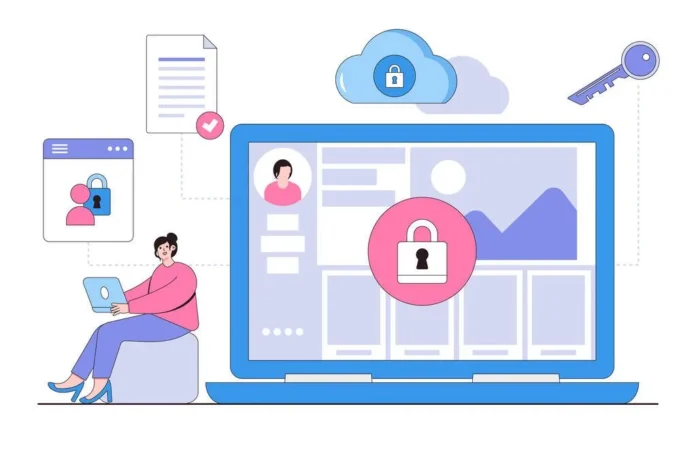Keeping information safe is extremely important for all companies, whether big or small. As more companies rely on web hosting services to run their operations, securing hosting solutions becomes increasingly critical. Windows hosting, known for its compatibility with various Microsoft applications and user-friendly interface, is a popular choice among businesses. AccuWeb Hosting provides Microsoft’s security features, enhancing the security of Windows hosting environments. However, ensuring the security of Windows-hosted environments requires a proactive approach and adherence to best practices. This blog will explore essential strategies for maintaining a secure Windows hosting environment for businesses that prioritize security.
Best Practices Overview
| Best Practice | Description |
| Regularly Update and Patch Your System | Keep the system updated with the latest security patches and updates from Microsoft. |
| Implement Strong Password Policies | Enforce complex passwords, regular changes, and multi-factor authentication (MFA). |
| Utilize Firewalls and IDS | Monitor and control network traffic with firewalls and intrusion detection systems (IDS). |
| Conduct Regular Security Audits | Perform audits and vulnerability assessments to identify and mitigate potential weaknesses. |
| Secure Remote Access | Use secure protocols like RDP with encryption and limit access to trusted IP addresses. |
| Backup Data Regularly | Implement automated backup solutions and store backups in secure, off-site locations. |
| Employ Antivirus and Anti-Malware Solutions | Use updated antivirus software and perform scheduled scans to detect and remove malware. |
1. Regularly Update and Patch Your System
One of the foundational steps in securing a hosting environment is to keep the system updated with the latest security patches and updates. Microsoft frequently releases updates to address vulnerabilities and enhance security. By enabling automatic updates, businesses can ensure that their systems are always protected against the latest threats. Regularly checking for updates and applying them promptly minimizes the risk of exploitation by cybercriminals.
2. Implement Strong Password Policies
Passwords are the first line of defense against unauthorized access. Implementing strong password policies is crucial for safeguarding your Windows hosting environment. Encourage users to create complex passwords that combine letters, numbers, and special characters. Additionally, enforce regular password changes and avoid using default credentials. Multi-factor authentication (MFA) adds an extra layer of security, requiring users to verify their identity through a secondary method, such as a text message or authentication app.
3. Utilize Firewalls and Intrusion Detection Systems
Firewalls and intrusion detection systems (IDS) are essential tools for monitoring and controlling incoming and outgoing network traffic. A robust firewall helps block unauthorized access while allowing legitimate traffic. Configuring firewalls correctly and regularly updating their rules can prevent potential threats from penetrating the network. IDS solutions monitor network activity for suspicious behavior and alert administrators to potential security breaches, enabling prompt action to mitigate risks.
4. Conduct Regular Security Audits
Regular security audits and vulnerability assessments are vital for identifying and addressing potential weaknesses in your Windows hosting environment. Conducting thorough audits involves reviewing system configurations, access controls, and security policies. By proactively identifying and mitigating vulnerabilities, businesses can strengthen their security posture and reduce the risk of data breaches.
5. Secure Remote Access
Remote access is often necessary for managing Windows hosting environments, but it can also be a significant security risk if not properly secured. Implementing secure remote access protocols, such as Remote Desktop Protocol (RDP) with strong encryption, is essential. Additionally, limit remote access to trusted IP addresses and use virtual private networks (VPNs) to establish secure connections. Regularly review and update remote access permissions to ensure that only authorized personnel can access the system.
6. Backup Data Regularly
Data loss can occur due to various reasons, including cyberattacks, hardware failures, or accidental deletions. Regular data backups are crucial for ensuring business continuity in the event of data loss. Implementing automated backup solutions can help maintain up-to-date copies of critical data. Store backups in secure, off-site locations and regularly test the restoration process to ensure that data can be recovered quickly and efficiently.
7. Employ Antivirus and Anti-Malware Solutions
Antivirus and anti-malware solutions are essential for protecting Windows hosting environments from malicious software. These tools help detect, quarantine, and remove malware before it can cause significant damage. Regularly update antivirus software to ensure it can identify and neutralize the latest threats. Additionally, perform scheduled scans to identify any potential infections and take appropriate action to mitigate risks.
Conclusion
Securing a Windows hosting environment requires a comprehensive and proactive approach. By following these best practices, businesses can significantly enhance their security posture and protect their valuable data and resources. Regular updates, strong password policies, firewalls, security audits, and employee education are just a few of the critical measures that contribute to a secure hosting environment. In an ever-evolving threat landscape, staying vigilant and continuously improving security practices is essential for safeguarding your business.
